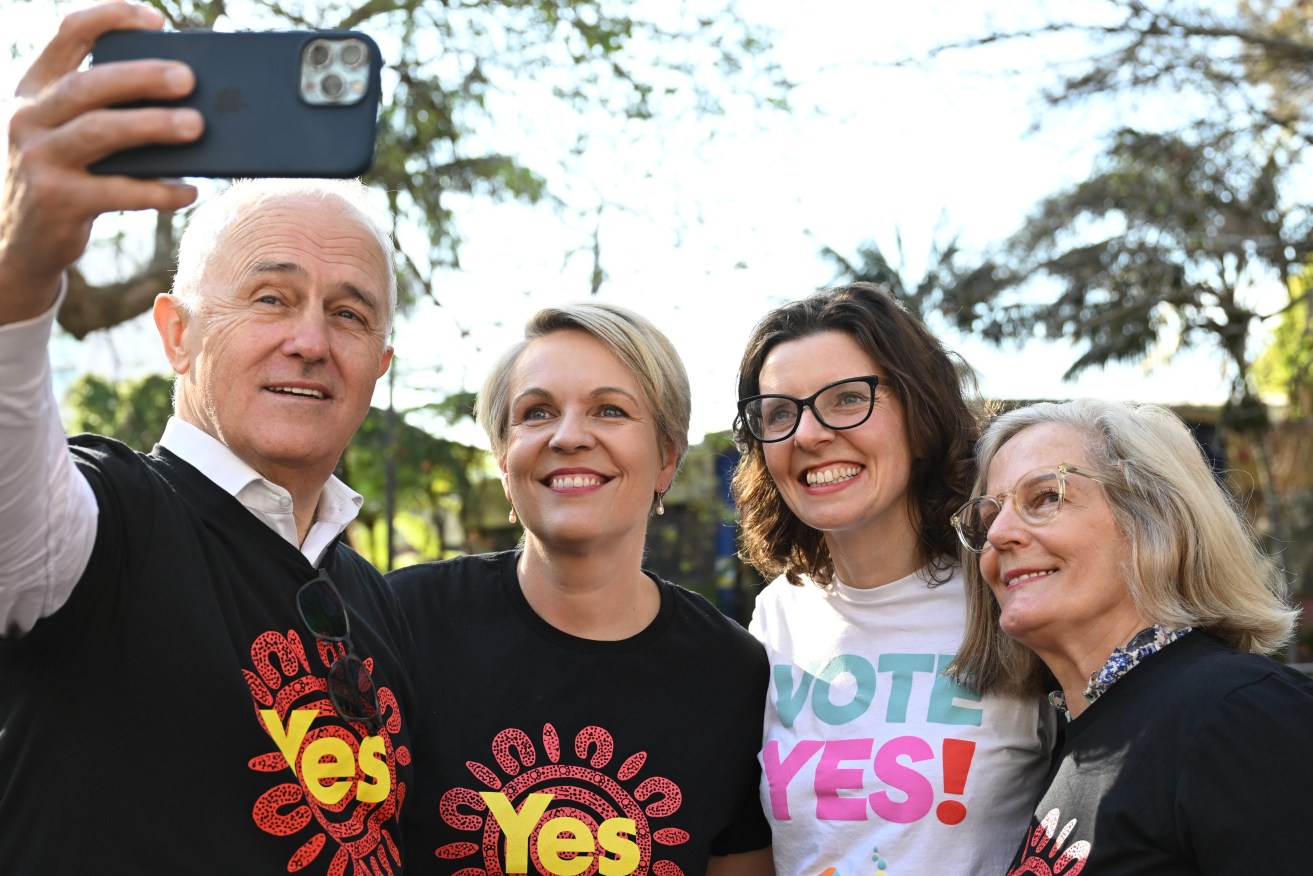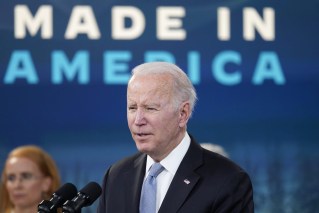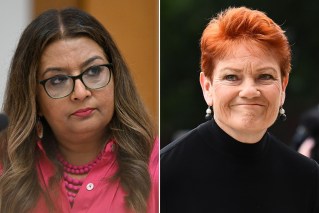It’s a date: Albanese confirms October 14 referendum, leaves six weeks to convince nation
Australians will go to the polls on October 14 to decide whether to enshrine an Indigenous voice in the constitution.

( Former prime minister Malcolm Turnbull takes a selfie with Federal Minsiter for the Envrioment Tanya Plibersek, Federal member for Wentworth Allegra Spender and Lucy Turnbull ias they hand out Yes campaign material for the Voice in Kings Cross. (AAP Image/Dean Lewins)
Prime Minister Anthony Albanese announced the date for the country’s first referendum in 24 years in a speech in Adelaide on Wednesday.
Mr Albanese said the voice had support from a vast cross-section of the country.
“Referendums come around much less often than elections – this will be the first one this century,” he said.
“On October 14, you are not being asked to vote for a political party or for a person, you’re being asked to vote for an idea, to say ‘yes’ to an idea whose time has come.”
The prime minister was joined at the event by Indigenous Australians Minister Linda Burney and South Australian Premier Peter Malinauskas.
The announcement marks the start of a six-week campaign on the proposed constitutional change.
The referendum will ask Australians to recognise Aboriginal and Torres Strait Islander peoples as the first peoples of Australia by enshrining an advisory body known as the voice.
For the referendum to succeed, a majority of states need to vote ‘yes’ as well as the majority of Australians.
The referendum will be the first time Australians will vote on whether to change the constitution since the country vetoed the republic in 1999.
South Australia was chosen for the launch as it is viewed as a key battleground state for the poll.
Queensland and Western Australia are widely expected to cast a ‘no’ majority.
It is anticipated NSW and Victoria will swing behind the ‘yes’ campaign.
A survey of 605 South Australians by think tank the Australia Institute indicates 43 per cent back an Indigenous voice to parliament while 39 per cent are opposed.
The undecided 18 per cent were evenly split in their leaning, putting ‘yes’ ahead at 52-48.
Mr Albanese said Indigenous people had been advocating for constitutional recognition through a voice for years.
“Legal experts have endorsed it. People on all sides of the parliament have backed it. Faith groups and sporting codes and local councils and businesses and unions have embraced it,” he said.
“An army of volunteers from every part of this great nation are throwing all of their energy behind it. Now, my fellow Australians, you can vote for it.”
The prime minister said the country could not afford to vote against the idea of an Indigenous voice.
“Voting ‘no’ leads nowhere. It means nothing changes. Voting ‘no’ closes the door on this opportunity to move forward,” he said.
“Vote ‘yes’ for recognition, vote ‘yes’ for listening, vote ‘yes’ for better results. Vote ‘yes’ is a change for the better.”
The launch of the referendum date had seen a flurry of activity by the ‘yes’ campaign, including door knocks and street walks.
Former Liberal prime minister Malcolm Turnbull joined Environment Minister Tanya Plibersek and ‘yes’ volunteers to hand out flyers in Sydney.
In Tasmania, Liberal MP Bridget Archer hit the streets to encourage voters to back the proposal, while Greens leader Adam Bandt and NDIS Minister Bill Shorten talked to commuters in Melbourne’s inner north.
Other polls have the ‘yes’ vote lagging across the nation and on a downward trend but campaigners say the mood on the ground is more hopeful.
History is against the voice succeeding, with just eight of the country’s 44 referendums being successful.
Co-chair of the Uluru Dialogue Megan Davis said the referendum was a chance for the country to unite for change.
“We know a strong majority (more than 80 per cent) of Aboriginal and Torres Strait Islander people support the voice to parliament because they know it will improve outcomes within their communities,” she said.









